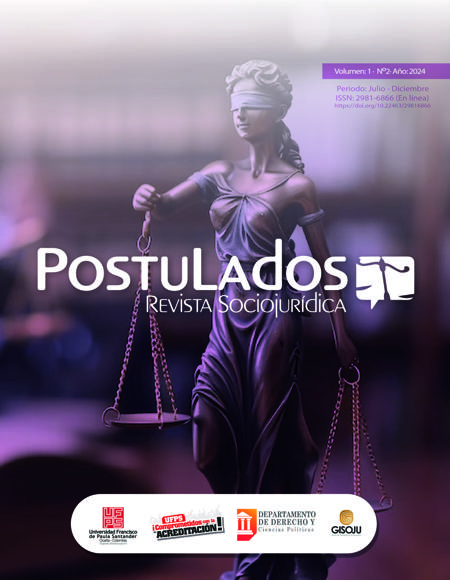Reflective analysis of the article "The Rwandan Genocide: Analysis of the factors that influenced the conflict
Analisis reflexivo del artículo “El Genocidio de Ruanda: Analisis de los factores que influyeron en el conflicto”
Main Article Content
This essay is written as a research project within the Master's program in International Humanitarian Law, Human Rights, and Operational Law at the University of Nebrija in Spain. The primary objective of this work is to conduct a reflective and critical analysis of Rodríguez Vázquez's (2017) article titled "The Genocide in Rwanda: Analysis of the Factors Influencing the Conflict." Various crucial aspects will be explored, such as the influence of European colonization in fostering a growing message of discrimination, the role played by global powers in the conflict, the economic interests that still surround Rwanda today, and the significant influence of religion as a key factor in the genocide.
The analysis will focus on unraveling the complexities of these factors, reflecting on the author's conclusions, as articulated in their study. However, we will enhance this essay by proposing new key points that will contribute to a deeper reflection on the impact of the Rwandan genocide on the international stage and the understanding of its historical and contemporary roots.
Publication Facts
Reviewer profiles N/A
Author statements
Indexed in
- Academic society
- Universidad Francisco de Paula Santander
- Publisher
- UNIVERSIDAD FRANCISCO DE PAULA SANTANDER SECCIONAL OCAÑA
Article Details
Coello, I. (2020). Justicia Popular en Ruanda. Papeles, 115 - 114.
Deiros, T. (02 de 03 de 2016). El país que lava el coltán de sangre para las multinacionales. (E. Confidencial, Ed.) Obtenido de https://www.elconfidencial.com/mundo/2016-03-02/el-pais-que-lava-el-coltan-de-sangre-para-las-multinacionales_1161442/
Field, S. (2009). El genocidio ruandés de 1994: Recordando e imaginando a través de los límites de tiempo, espacio y palabras. Revista Testimonios(1), 2-22.
Gómez Salgado, M. (2009). Ruanda: un colonialismo simbólico. Bogotá: Pontificia Universidad Javerian.
González Márquez, V. (2009). Ruanda, 1994. Un genocidio mitificado y descontextualizado. XII Jornadas Interescuelas/Departamentos de Historia. Departamento de Historia Facultad de Humanidades y Centro Regional Universitario Bariloche. Universidad Nacional del Comahue. San Carlos de Bariloche: 1-14.
Gonzalez Orallo, C., & Lopez de Ahumada Ranchal, C. (2019). Ruanda: una mirada atemporal. Autónoma Internacional, 75-80.
Marchioni, V. (s.f.). Unión africana: Entre el sistema de seguridad regional, la paz y la responsabilidad de proteger. Instituto de relaciones internacionales, 1-9.
Mecanismo Residual Internacional de los Tribunales Penales de las Naciones Unidas. (s.f.). Sitio web heredado del Tribunal Penal Internacional para Ruanda. Obtenido de https://unictr.irmct.org/en/genocide
Preti, F. (2020). Las Huellas de los conflictos contemporaneos Africanos y Asiaticos en el territorio Satafecino. El genocidio de Ruanda. Entre la invisibilización a causa de las grandes potencias y su rol como país del tercer mundo.
Rodríguez Vázquez, D. (2017). El Genocidio de Ruanda: Analisis de los factores que influyeron en el conflicto. Instituto Español de Estudios Estrategicos, 1 - 20.
The Prosecutor vs Ferdinand Nahimana Jean-Bosco Barayagwiza Hassan Ngeze, ICTR-99-52-T (International Criminal Tribunal for Rwanda 03 de december de 2003).
Wabgou, M. (2013). Experiencias posconflicto de países africanos: justicia transicional en Ruanda. NOVUM JUS, 7(1), 31-49.











